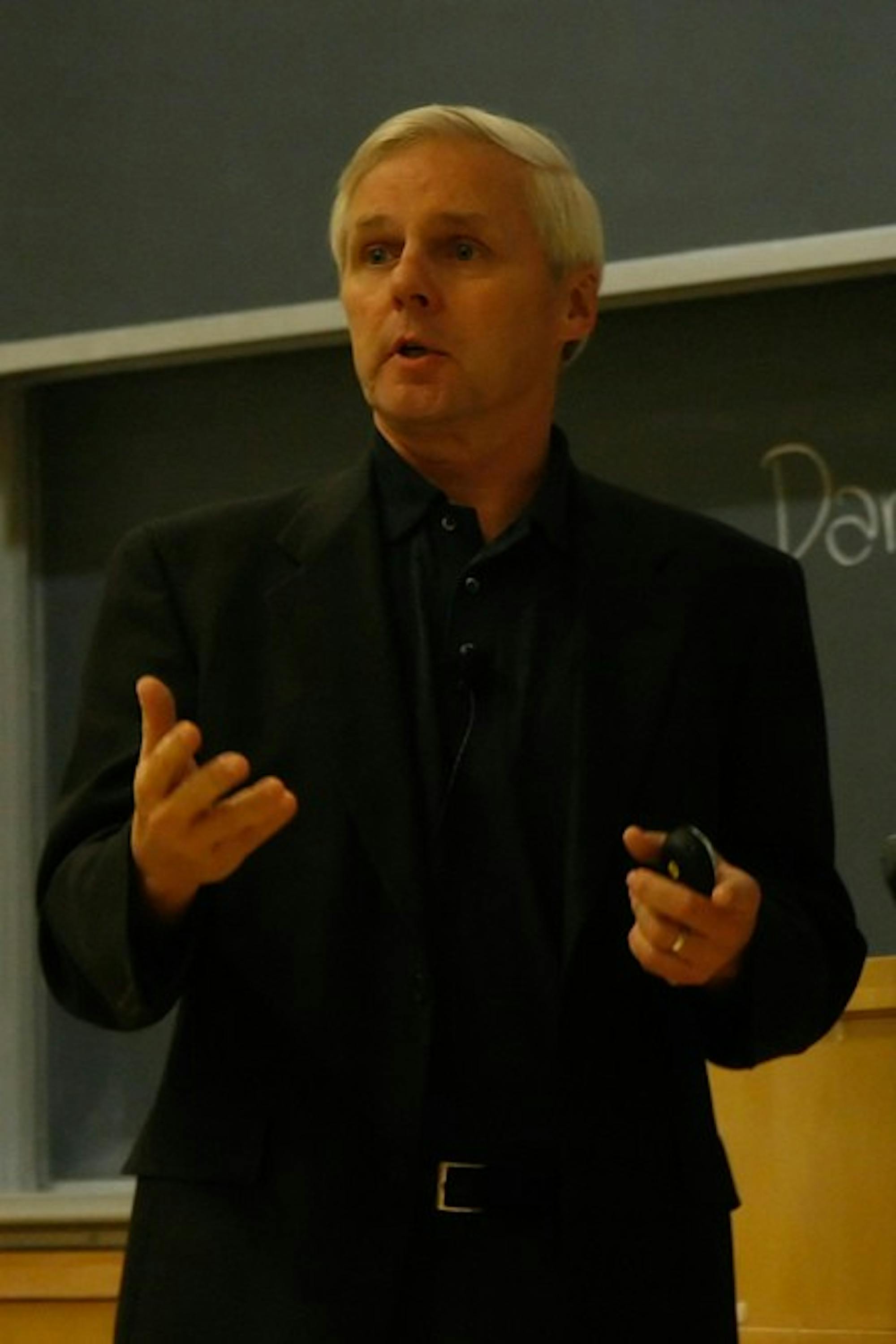Cyber warfare is increasingly important in international relations, Thomas said. He explained that a large scale attack on U.S. infrastructure has the potential to affect everything from the country's banking system to its military operations.
Thomas compared his work with cyber warfare to his previous work monitoring Russian intelligence in the Soviet Army Studies Office of the Army during the Cold War. Western countries did not know what actions the Soviet Union would take at that point, he said, just as current military strategists are unaware what to expect with regards to cyber warfare.
It is difficult for governments to trace the source of a cyber security breach because attackers can route information through servers in several countries, Thomas said. Even when the country of origin is known, as with many attacks originating from China, it is impossible to determine whether the attacker was acting independently or in service of the country's government.
This "plausible deniability" makes it difficult for governments to take action against other governments suspected in cyber attacks, Thomas said. He cited several recent examples in which cyber attacks that may have been government-sponsored were blamed on individual hackers.
Hackers located in China have launched cyber attacks against England, Australia, Germany, Canada, South Korea, Japan and the United States in the past decade, Thomas said. Given the wide range of these attacks, Thomas questioned whether the attacks were coincidental or constituted a set of probes by the Chinese government.
None of these attacks have been directly linked to the Chinese government, he said. Many have been perpetrated by "patriot hackers," individuals acting independently of the Chinese government to promote what they believe to be China's interests, he said.
Thomas, who researches Chinese thought about new technological warfare methods, said that Chinese strategy is focused on looking at objective conditions and trying to manipulate them. Strategies are often designed to mislead enemy perception and focus on the idea of control, he added.
"This is a much greater expansion of the concept of strategy than anything you'll see in this country," Thomas said. "The whole point of strategy is to make you do something you don't even realize you're doing. The Chinese have a saying: 'The only thing scarier than inferior technology is inferior thinking.'"
Thomas said the United States should emulate the Chinese model of combining technology with new strategies.
"They're doing some very interesting things we should be learning from," he said.
Thomas detailed the collision of American and Chinese military planes that led to the death of a Chinese pilot on April 1, 2001. The EP-3 incident was greeted by uproar in China, particularly directed against the United States. Civilian hackers in China began to attack U.S. web sites, causing American hackers to retaliate, Thomas said.
"You can see how this whole cyber issue with non-state actors can really take you to a place you don't want to be," he said.
A year after the EP-3 collision, individual civilians began planning a large-scale attack, but stopped their plans after a receiving a warning from the Communist Party, Thomas said.
"The control mechanisms seem to be there from above," he said, referring to the government's ability to prevent the hackers from implementing their plan.
Thomas recently published "Fighting the Virtual Dragon," a compilation of five Chinese books on strategy.




